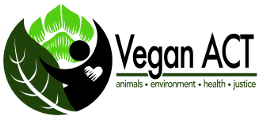What does Vegan mean?
The term vegan is used to describe a person who, as far as possible, does not eat or use any animal products. Vegans do not eat animal flesh (meat, poultry, fish, seafood), dairy (milk, butter, cheese), eggs, honey or animal by-products (such as gelatine, animal-derived colouring and flavouring, rennet).
Vegans avoid wearing animal products (such as leather, wool, silk and fur) and using household and cosmetic products that contain animal derivatives or have been subject to animal testing.
Vegans also avoids participating in entertainment and sporting activities which involve animal use (such as circuses, and horse and dog racing) and oppose animal experimentation in research.
Isn’t being vegetarian enough?
A vegetarian is a person who does not eat meat (including fish) but who may eat animal products such as dairy and eggs, and wear animal products such as leather and wool. Many people start out as vegetarian, before going vegan.
While vegetarianism is a positive step towards improved health and the alleviation of some animal suffering, there is immense cruelty and suffering involved in the dairy and egg industries, and in the production of leather and wool. You can learn more about that here.
The exclusion of all animal products and by-products from one’s diet and lifestyle is important to eliminating suffering and living a more compassionate lifestyle. That is why Vegan ACT actively encourages and supports people to adopt a wholly plant-based diet and vegan lifestyle.
